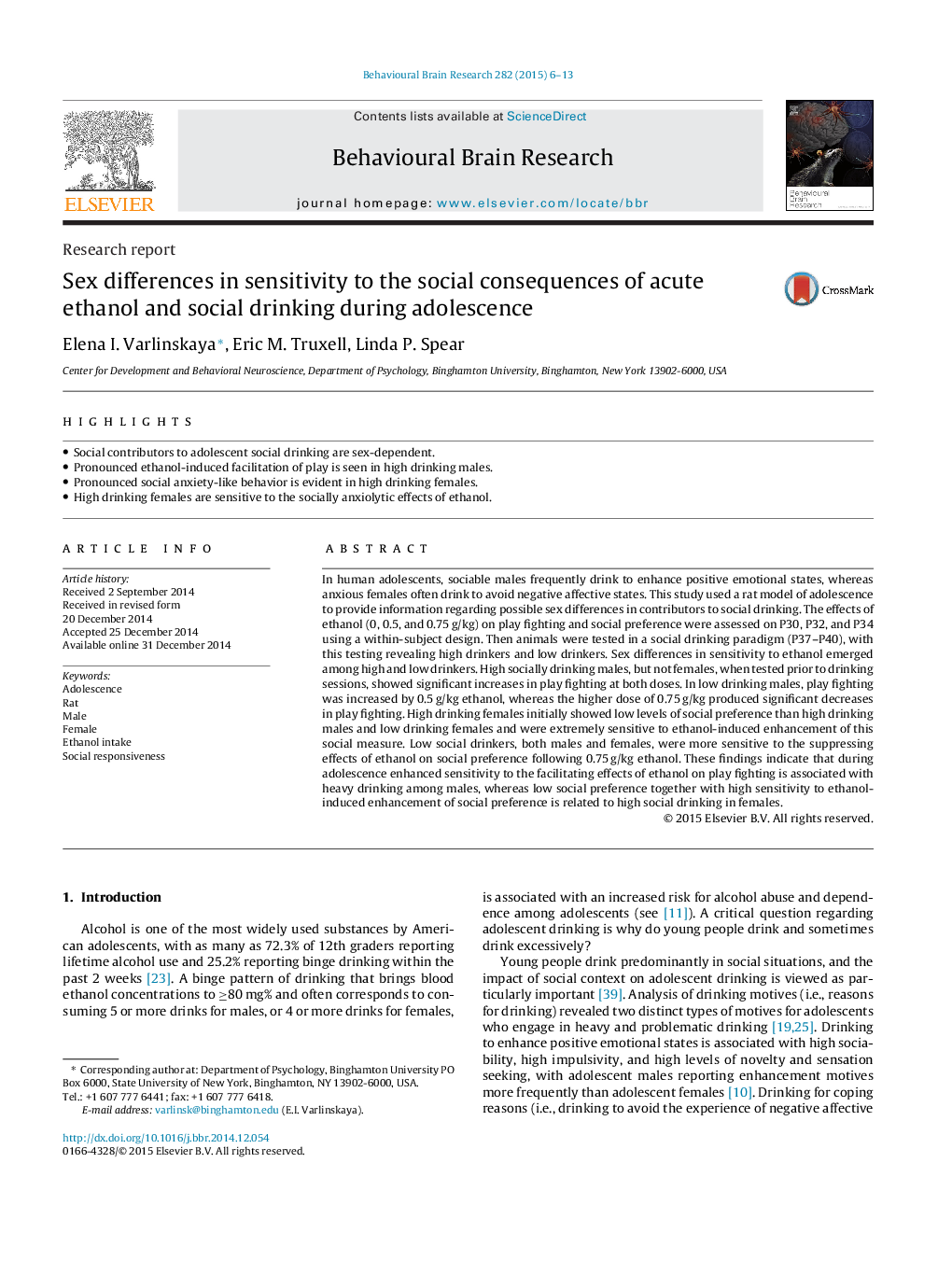| کد مقاله | کد نشریه | سال انتشار | مقاله انگلیسی | نسخه تمام متن |
|---|---|---|---|---|
| 6257247 | 1612950 | 2015 | 8 صفحه PDF | دانلود رایگان |
- Social contributors to adolescent social drinking are sex-dependent.
- Pronounced ethanol-induced facilitation of play is seen in high drinking males.
- Pronounced social anxiety-like behavior is evident in high drinking females.
- High drinking females are sensitive to the socially anxiolytic effects of ethanol.
In human adolescents, sociable males frequently drink to enhance positive emotional states, whereas anxious females often drink to avoid negative affective states. This study used a rat model of adolescence to provide information regarding possible sex differences in contributors to social drinking. The effects of ethanol (0, 0.5, and 0.75Â g/kg) on play fighting and social preference were assessed on P30, P32, and P34 using a within-subject design. Then animals were tested in a social drinking paradigm (P37-P40), with this testing revealing high drinkers and low drinkers. Sex differences in sensitivity to ethanol emerged among high and low drinkers. High socially drinking males, but not females, when tested prior to drinking sessions, showed significant increases in play fighting at both doses. In low drinking males, play fighting was increased by 0.5Â g/kg ethanol, whereas the higher dose of 0.75Â g/kg produced significant decreases in play fighting. High drinking females initially showed low levels of social preference than high drinking males and low drinking females and were extremely sensitive to ethanol-induced enhancement of this social measure. Low social drinkers, both males and females, were more sensitive to the suppressing effects of ethanol on social preference following 0.75Â g/kg ethanol. These findings indicate that during adolescence enhanced sensitivity to the facilitating effects of ethanol on play fighting is associated with heavy drinking among males, whereas low social preference together with high sensitivity to ethanol-induced enhancement of social preference is related to high social drinking in females.
Journal: Behavioural Brain Research - Volume 282, 1 April 2015, Pages 6-13
